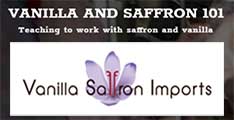Iker Saitua. I went with a friend from Reno. We did not make any preparations. After some hours on the road we reached Boise in rush hour. We started dropping by cheap and crappy motels. One after another: “NO-VACANCY.” We then started looking at the more expensive accommodations, but there was nothing available. We were tired and desperate. Then I suggested: “Let’s check out this motel over there.”
At the front desk, a carefree young man greeted us. We asked: “Any room?” “No,” he said. “What the hell! What is going on?” we exclaimed. Then, he explained: “Well, you know, there is this drinking party of immigrants going on.” “What?,” we were astonished. He further stated: “Yeah, there is an immigrant drinking party!” I knowingly asked him: “Are you talking about the Basque Festival?” “Yeah! that’s it. How do you know?” he replied. “Well …”
We left this place. This was the last motel we investigated for a place to spend the night. But we had a plan B. We were equipped with camping outfits, so we proceeded to search out a campground. It was late in the afternoon. We did not want to be late to install our camp. We drove to the nearest forest: Boise National Forest. On our way we stopped to buy dinner: some bratwursts, a stellar mustard, and a full rack of beer. Cheers! This came to be another drinking party, but German-style. It was inexpensive and our highlight of the Basque Festival.
Basque people have stereotypically been appended to drinking and taverns. Basques are typically known as heavy drinkers. Alcohol’s weight in Basque culture has served to continuous fabulation in the American West. There is a popular saying with folk culture: “Eat, Drink, and Be Basque.”
Deeply rooted in its past, alcohol is, for better or worse, a mark of Basques. Besides its cultural value, wine and other alcoholic beverages have played a highly significant economical role on the local and international markets during the history of the Basque Country. In their Catholic religion, also, wine represents a liturgical element and is traditionally used in church ceremonies.
A reputation persists that Basque people begin their day with a glass of wine. This is filled somehow with negative references to the Basque people. Nevertheless, I grew up hearing that a glass of wine every day had positive benefits for our immune systems. But I do not like wine. I prefer beer. I do not mean to say that a typical Basque is a drunkard wine lover. However, Basque people have long established a reputation for excessive drinking. Good drinkers, I guess, are everywhere.
This reputation has strengthened as Basque immigrants progressively resettled in different corners of the American West. From the 1880s to the 1920s, Basque immigrants provided the human labor for the sheep industry in the Great Basin. In the 1890s, as the industry expanded rapidly in Nevada, the Basque Country became an important reservoir of cheap and dependable labor to work in the public rangelands. Although other ethnic populations also entered this occupation, Basques had become a noticeable and visible group in sheep grazing at the turn of the century.
Those immigrants brought the Basque language, folk traditions, religious rituals and other ways of living with them. They soon understood that some cultural traditions in Basque society, such as clothing, mattered little in the new world. However, other elements adapted easily, such as the introduction of alcohol in celebrations and festivities. The cultural significance of alcohol in the Basque society has been structured and continuously reshaped in an American context.
In the late 19th and early 20th centuries, Nevada was a more violent and disorderly rural male-dominated frontierland. Like other western states, oftentimes fighting and criminal activity occurred as a consequence of drunken misadventures. High levels of alcohol consumption and some general social characteristics in the Anglo-society enhanced the high propensity toward violence among single and bachelor men in the saloons, bars and immigrant boarding houses.
While living side by side with natives, Anglo population, and other immigrant groups, Basques became part of this violent western American society. Money and honor-related violence, accentuated by social, racial, and cultural factors, with some high doses of testosterone, commonly occurred in the dusty and dirty towns of Nevada. In the atmosphere of “frontier” days it was common to be infected with the violent tempers.
In the early 20th century, some sectors in Nevada considered that alcohol’s relationship to violence was ubiquitous and started suggesting that illegalizing alcohol was the only way to create a stable community. These emerging voices against alcohol consumption in Nevada further claimed that immigrants coming from Catholic-dominated European countries were unassimilable, socially inferior, and drunkards. They thought that these immigrants were unassimilable because of their bad habits and abuse of alcohol, among other things. This included the Basque immigrants.
Along with continued nativist sentiment, the Great War had much to do with the entrenching prohibition in the United States. In 1919, the U.S. Congress passed the National Prohibition Act, so-called the Volstead Act, which banned commercialization of alcohol production in the United States. The act made alcohol consumption a crime. In the state of Nevada, prohibition went into effect earlier. On Nov. 15, 1918, Nevada had become dry when the state voted in favor of a prohibition enforcement act. It made unlawful the manufacture and marketing of alcoholic beverages. In 1919, the Nevada Legislature further ratified the prohibition amendment.
The restriction of sale and consumption of intoxicating liquor was incomprehensible for many European immigrant communities existing in the state of Nevada who valued alcohol in their traditions and customs. Among them were the Basque immigrants who saw prohibition as a menace to their traditional values because of alcohol’s importance in their culture. It was hard for Basque immigrants to understand why drinking wine, whisky, or other beverages was wrong.
But besides the strong cultural meaning, alcohol also involved commercial interests for some Basque families in Nevada who operated boarding houses. By the early 20th century, Basque hotels were highly successful and profitable businesses among the local community which generated strong cash flows. Under Prohibition, Basque immigrant boarding houses all over Nevada could not sell alcohol legally. Nonetheless, many Basque hotel owners took risks since selling alcohol represented an important source of revenue. In 1920, after the enforcement of this act, there were some Basque hotelkeepers who started to find ways to evade the law and preserve the alcohol consumption at their establishments.
During the Prohibition years, Basque boarding houses became shelters for drunkards. These Basque establishments became referential booze places to the overall non-Basque population, because they were among the few selling alcohol illegally. Typically, Basque owners distilled and sold alcohol in their boarding house kitchens. Basque hotels not only attracted heavy drinking miners, workers of the area, or thirsty women, but also local elites. This reputation in turn called the attention of federal officers. The feds at any moment could disrupt those “immigrant” parties.
Like many others, Basque illegal booze-traders were forced to adapt and organize new ways of alcohol production and supply. In rural frontier communities of the Great Basin, unsurprisingly, the bootlegging phenomenon emerged among Basque Americans too. In small towns like Jordan Valley, Oregon, or McDermitt, on the Nevada-Oregon border, some Basques started their own alcohol-dealing businesses.
Also in Elko, Basque moonshiners appeared to take advantage of the black market and make money during Prohibition. Nevertheless, they knew that the federal officers awaited and eventually would have discovered their activities. Some Basques were caught by law enforcement authorities and convicted of violating the prohibition law. Among those Basque smugglers was Joe Marisquerena, a Basque immigrant who during the 1920s ran the Amistad Hotel in Elko.
On Feb. 4, 1921, Herbert U. Castle, Elko County’s district attorney, charged Marisquerena with violating the prohibition law. He was convicted by the State of Nevada for illegally selling alcohol in his hotel. Although Marisquerena at first appealed to the court, he soon pleaded guilty because he could not prove his innocence. Marisquerena was sentenced to two months in the county jail and to pay a fine of $100. After Marisquerena, other Basque immigrants went before the same court for breaking the prohibition law, including John Larragueta, Emilio Erro and Joe Saldias.
As the ‘20s proceeded, a wet movement gained momentum and a growing number of voices in Nevada clamored for the repeal of Prohibition in the United States. In February 1933, at President Franklin Delano Roosevelt’s request, Congress repealed the National Prohibition Act.
The decision of the federal government to legalize alcohol consumption was cheered by many Nevadans, including the Basque community. Drinking alcohol was on the rise again. These actions served to strengthen relations outside their Basque immigrant community borders and, in turn, legitimized their activities by bringing attention to a common identity in Nevada.



 Lagun bati bidali
Lagun bati bidali Komentarioa gehitu
Komentarioa gehitu








